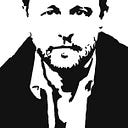In Defense of Looking Through The Wrong Ends of the Telescopes
In his book, The Soul’s Code, psychologist James Hillman returns, again and again, to the value of looking backward at life.
The book, which had its heyday of popularity 30(!) years ago in the ’90s, is all about identifying the calling of your life. His “Acorn Theory” teaches that each of us comes to earth with an internal image — a blueprint for our lives, complete a purpose and intention.
Hillman teaches that our “purpose” often finds us at a young age and, as children, we’re often not prepared for what destiny has in store for us — so we run from it. He believes the Acorn Theory is an alternative explantation for what modern psychology has described as “Compensation Theory”
The idea of Compensation says that, in adulthood, we try to make up for deficiencies we see in ourselves in childhood. The Child who grew up poor works to become successful. The weak, bullied child trains his body to become strong.
Hillman suggests, via the Acorn Theory, that we might make adult proclivities and activities less of an effect and something more akin to a cause. Our “daimon” as Hillman (and the Greeks) called it — a guiding spirit, tasked with pushing us towards our purpose — is too much for us as a child, so we run in the opposite direction. Our destiny to be a writer feels too big, so we avoid writing as a child. The potentially solitary nature of our eventual adult vocation scares us, so we live our childhood as social creatures, wanting never to be alone.
By invoking the reality of a “daimon” Hillman invites being scoffed at and written off by modern psychology — but he does so knowingly, pointing out psychology’s refusal to believe in providence as a modern weakness as opposed to scientific advancement.
I’m no stranger to and do no object to the idea of a Daimon. “There are more things in heaven and Earth, Horatio, than are dreamt of in your philosophy,” as someone famous once said.
What I find really useful about Hillman’s philosophy, though, is how well it aligns with my experience. As someone that helps people to find their purpose in life, for a living, that purpose, very rarely, reveals itself with a parting of the clouds. One can wait forever listening for angel choirs. Our purpose, most often, I find, reveals itself over time as a still quiet voice, when looking back over our lives.
Like Jung, in that famous story, we think back to our childhood and remember how we spent our free time — that those memories provide a clue to our purpose. For Jung, playing with and stacking rocks as a child, inspired him to build a castle to live in as an adult — the building of that stronghold enlivened this research and therapy for the rest of his life.
What do you see when you look backward?
